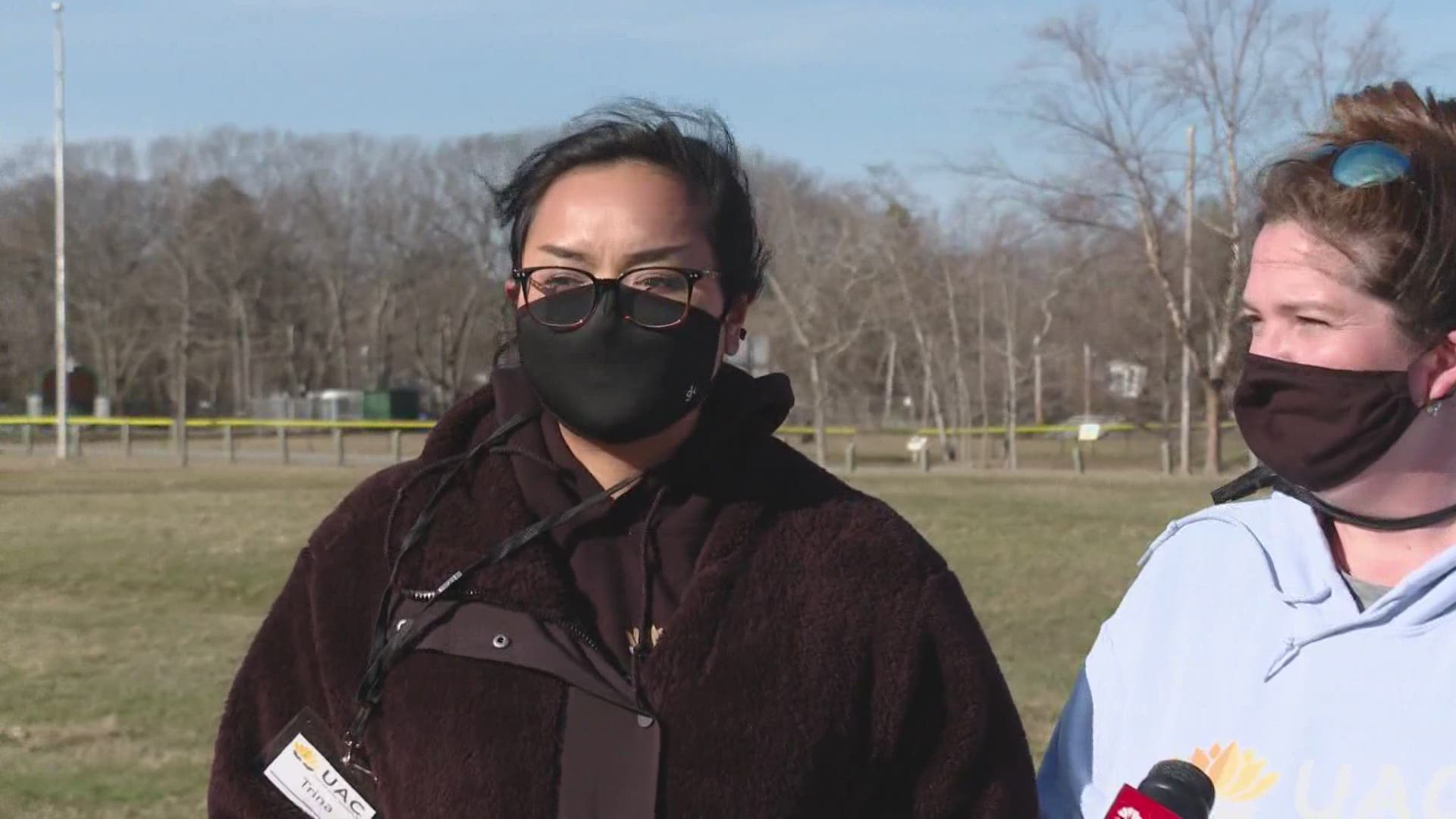WASHINGTON, D.C., USA — Editor's Note: The video above aired on March 30, 2021.
Maine’s two U.S. senators are backing efforts against anti-Asian hate crimes, which have increased amid the coronavirus pandemic.
Independent Sen. Angus King announced Wednesday he’s backing two Senate efforts to combat hate crimes aimed at Asian Americans and Pacific Islanders (AAPIs). King said he’s cosponsoring the COVID-19 Hate Crimes Act, which was introduced by Sen. Mazie Hirono, D-Hawaii, and Rep. Grace Meng, D-N.Y.
The bill would direct the Justice Department to expedite the review of coronavirus-related hate crimes against Asian Americans and would provide support to state and local law enforcement responding to these hate crimes.
The bill is the most substantive congressional response to what has been an alarming rise in racist sentiment against Asian Americans, fueled in part by derogatory language about the virus’ origins in China. Donald Trump, while president, played into that narrative with derisive nicknames for the virus. The moment harks back to earlier eras of racism against Chinese Americans, Japanese Americans, and others of Asian heritage in the U.S.
King is also supporting a Senate resolution that condemns anti-Asian sentiment, racism, and discrimination.
“In communities across the country, including Portland, we’ve seen anti-Asian hate crimes over the course of the pandemic – forcing too many of our friends and neighbors to live in fear,” King said in a statement. “This type of harassment and violence is absolutely unacceptable. It is essential that we condemn this bigotry in the strongest terms, and advance legislation to provide the resources necessary to fight these hateful acts.”
Maine Republican Sen. Susan Collins and Hirono authored an amended bill, which updates the bill's language “to broaden bipartisan support while retaining the purpose of the bill,” Collins’ office said Wednesday.
The amended bill strongly condemns the hate crimes targeting AAPIs, helps the DOJ focus its resources on hate crimes amid the pandemic, and incorporates the Jabara-Heyer NO HATE Act, which provides state and local governments and law enforcement agencies with additional tools and resources to understand, identify, and report hate crimes.
“Crimes motivated by bias against race, national origin, and other characteristics cannot be tolerated. Our amendment both denounces those acts and marshals additional resources toward addressing and stopping these horrible crimes,” Collins said in a release. “I thank Senator Hirono for her leadership on this amendment and urge my colleagues to support it. In doing so, we can affirm our commitment to stand with our Asian American and Pacific Islander community against all forms of violence and harassment.”
“Working closely together, Senator Collins and I identified changes that will broaden support for the COVID-19 Hate Crimes Act while retaining the bill’s core purpose to combat anti-Asian hate," Hirono said in a statement. "I am confident that with these changes, the Senate can pass this legislation with a strong, bipartisan majority and send a clear message of support and solidarity to the AAPI community. As the Senate continues debate on this measure, I urge my colleagues to reject any amendment that seeks to weaken our bipartisan proposal and join us in supporting this bill."
On Thursday, the Senate continued debate on the bill and amendments before a final vote. Collins spoke on the Senate floor and urged her colleagues to pass the amended legislation she and Hirono worked on.
"Crimes motivated by bias against race, national origin, or other characteristics simply cannot be tolerated," Collins said on the floor Thursday. "Our amendment both denounces these acts and marshals additional resources toward addressing and stopping these despicable crimes."
Last week, the White House issued a statement of administrative policy that “strongly supports” the bill's passage. “Elected leaders must act to prevent anti-Asian violence and advance inclusion and belonging for all Asian American communities,” it said.
Numerous Asian American organizations say Trump's rhetoric has emboldened people to express anti-Asian or anti-immigrant views.
A study by the Center for the Study of Hate and Extremism at California State University, San Bernardino showed anti-Asian hate crimes in 16 of the largest U.S. cities rose by nearly 150 percent last year.
Nearly 3,800 incidents have been reported to Stop AAPI Hate, a California-based reporting center for AAPIs, and its partner groups, since March 2020. Nationally, women reported hate crimes 2.3 times more than men.
In March, an Asian-American woman and her daughter were targets of a hate crime in Portland. A man allegedly kicked and broke the side mirror of the victim's car and yelled at her to "go back to [her] country."
Maine Attorney General Aaron Frey said he would file a civil rights enforcement action under the Maine Civil Rights Act, seeking a protective injunction for the alleged victim and her family.
“We are bearing witness to an unconscionable increase in hate crimes being perpetrated against individuals of Asian descent across our nation,” Frey said in a release. “We will not tolerate such attacks in Maine, and we will act swiftly to address allegations like those received last [month] out of Portland.”

